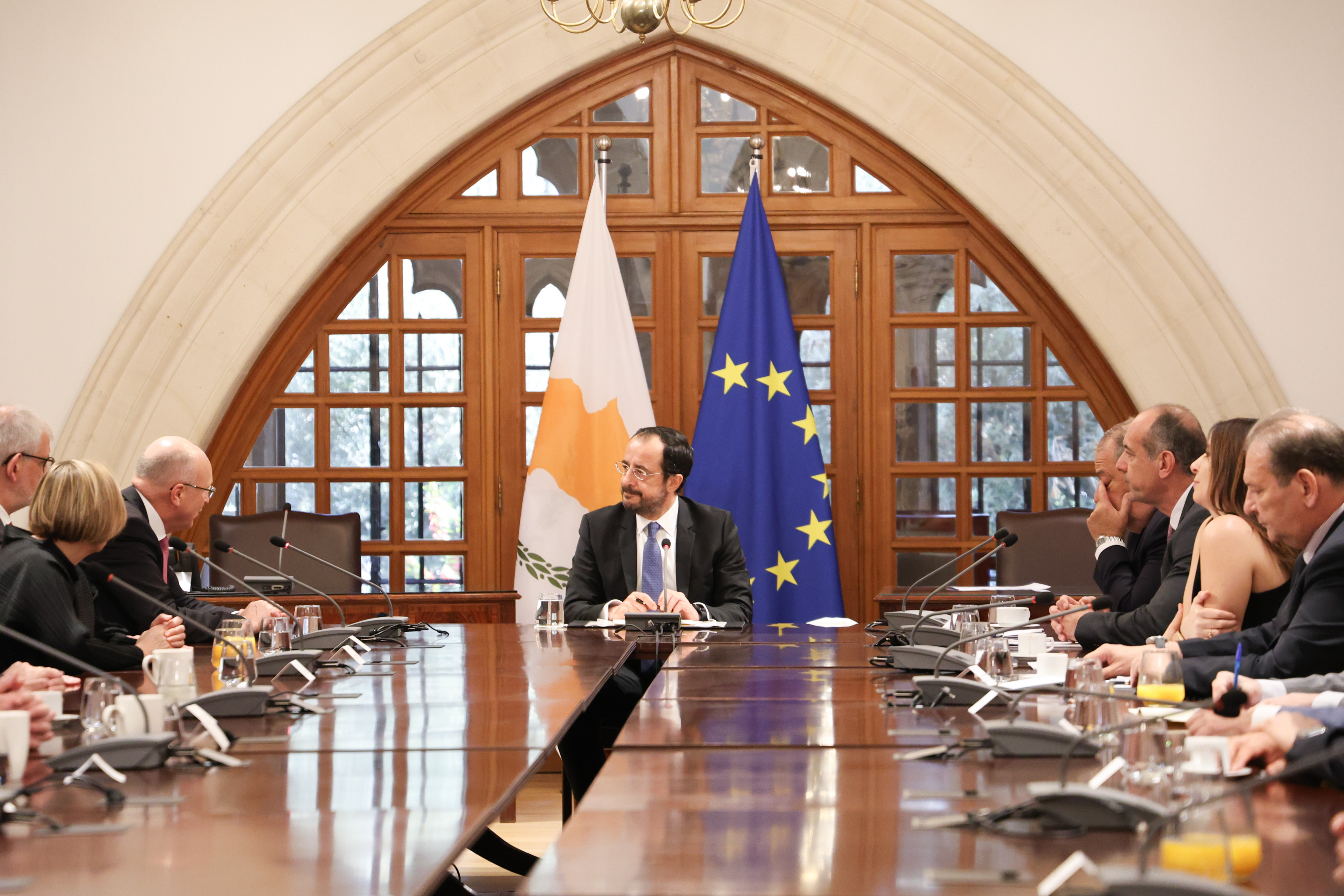It is important for the court to see conditions on the ground in EU member states, president of the European Court of Justice (ECJ) Koen Lenaerts said on Tuesday during a visit to Nicosia.
Lenaerts visited Cyprus with a 16-member delegation and met President Nikos Christodoulides at the presidential palace before meeting attorney-general George Savvides.
Welcoming the delegation, Christodoulides said the visit was timely as Cyprus prepares to take over the EU Council Presidency in less than 57 days.
He highlighted that the country has worked for two years to ensure a successful presidency, stressing the significance of Cyprus being the last divided EU member state.
“For us, EU laws, values, and principles are very important in our efforts to resolve the Cyprus problem and reunite the country,” he said.
The president reminded the delegation that when Cyprus joined the EU in 2004, protocol 10 was attached to its accession. This protocol suspends the application of EU law in areas not under the effective control of the republic.
Christodoulides discussed challenges shared with the ECJ, including digital transformation.
He also noted ongoing EU council discussions on the rule of law, democracy, migration, and other issues Cyprus will face during its presidency, while respecting the court’s independence.
Lenaerts said the ECJ aims to understand member states’ realities on the ground.
He said Cyprus’ strategic location as the EU’s easternmost point, near the Middle East, has implications for both geopolitics and migration.
He added that the delegation had a “very fruitful exchange” with Cyprus’ Supreme Constitutional Court and Supreme Court.
He explained that the ECJ does not take cases on its own initiative. Cases are referred by national courts seeking guidance on EU law.
“EU law must remain uniform in interpretation, application, and enforcement, guaranteeing equality before the law for all member states and their citizens. Every legal system survives only when equality before the law is ensured,” Lenaerts said.
He also described the ECJ as a constitutional court that ensures EU legislative and executive acts comply with primary EU law, including the charter of fundamental rights.
“The application of the charter brings us closer to democracy, the rule of law, and human rights, which member states are obliged to uphold,” he concluded.






Click here to change your cookie preferences